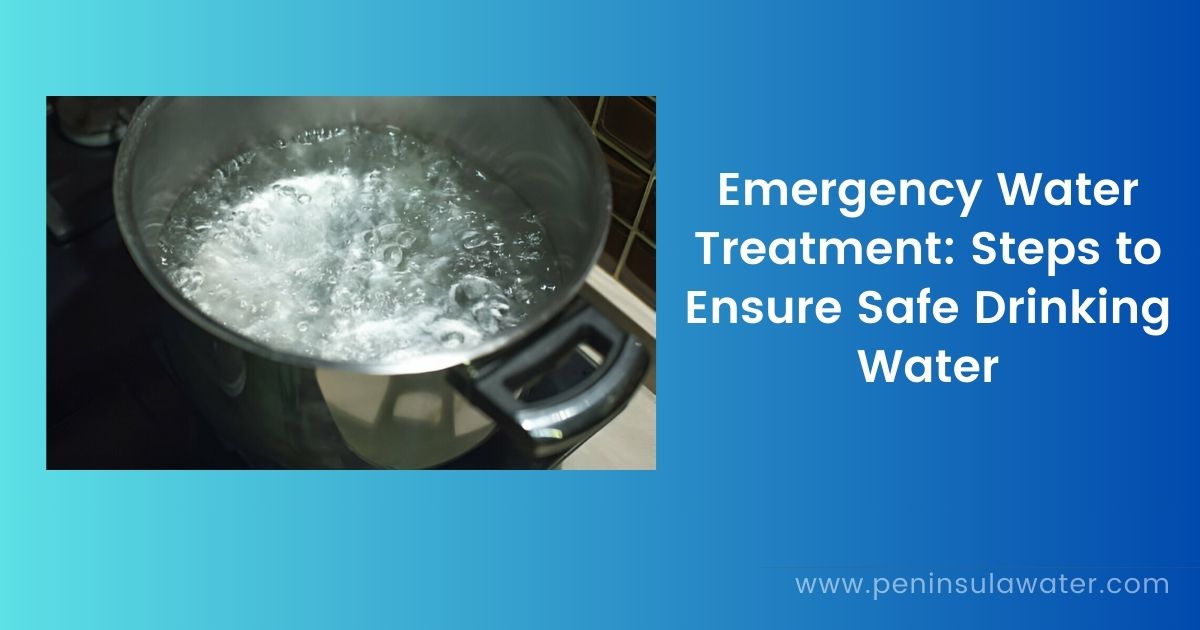
Ensuring access to safe drinking water is crucial, especially during emergencies when water sources may become compromised. Water treatment services play a vital role in safeguarding water quality for residential and commercial properties. In this guide, we’ll explore the steps involved in emergency water treatment to maintain safe drinking water.
What is a Drinking Water Emergency, and What Can Cause It?
A drinking water emergency occurs when water quality is compromised, making it unsafe for consumption or use. Several factors can lead to such emergencies:
- Natural Disasters: Events like floods, hurricanes, or earthquakes can disrupt water infrastructure, leading to contamination of water sources.
- Infrastructure Failures: Malfunctions or breaks in water treatment facilities or distribution systems can compromise water quality.
- Chemical Spills: Accidental spills of chemicals or pollutants near water sources can contaminate drinking water.
- Biological Contamination: Outbreaks of waterborne diseases due to bacteria, viruses, or parasites can result in drinking water emergencies.
- Human Error: Mistakes during water treatment processes or maintenance can inadvertently introduce contaminants into the water supply.
Identifying the cause of the emergency is crucial for implementing the appropriate response and treatment measures.
Advisories Commonly Issued in a Drinking Water Emergency
During a drinking water emergency, health officials may issue specific advisories to inform the public about potential risks and necessary precautions. The following advisories are commonly issued:
1. Boil Water Advisory (BWA)
A Boil Water Advisory (BWA) is issued when there is a risk that water may be contaminated with harmful bacteria or pathogens. In such cases, residents and businesses are advised to boil tap water vigorously for at least one minute before using it for drinking, cooking, making ice, brushing teeth, or any other activity that involves consuming water.
2. Do Not Drink Advisory
A Do Not Drink Advisory is issued when water is contaminated with substances that pose a significant health risk if ingested. Under this advisory, individuals are instructed not to use tap water for drinking, cooking, making ice, or any other consumption-related activities.
3. Do Not Use Advisory
A Do Not Use Advisory is the most severe type of advisory and is issued when water is contaminated with substances that can harm individuals even upon contact with the skin or inhalation. This advisory prohibits all uses of tap water, including drinking, cooking, bathing, washing dishes, or any other use that may expose individuals to contaminated water.
In the event of any of these advisories, it is crucial to seek alternative sources of safe water or implement emergency water treatment measures to ensure the water is safe for consumption and use.
How to Treat Tap Water for Use in An Emergency
In an emergency situation where tap water may be compromised, it’s essential to take proactive steps to treat water before use. Whether you’re at home or managing a commercial property, these methods can help ensure that the water you consume is safe.
Find Out What’s in Your Water
Before treating your water, it’s crucial to understand its current quality and any potential contaminants. Here’s how you can do this:
Obtain a Water Quality Report:
- Contact your local water utility or health department to obtain a recent water quality report for your area. This report will provide valuable information about the types of contaminants typically found in your water supply.
Get Your Water Tested:
- If you have specific concerns about your water quality or suspect contamination, consider getting your water tested by a certified laboratory or a water treatment service. This testing can identify any harmful substances present in your water and guide appropriate treatment measures.
Treating Your Water
Once you have assessed the quality of your tap water, you can proceed with the following methods to treat it for safe consumption:
Boil the Water:
Boiling is one of the most effective methods to kill harmful bacteria, parasites, and viruses that may be present in water. To ensure safety:
- Bring water to a rolling boil (bubbles actively breaking the surface) for at least one minute.
- Allow the water to cool before using it for drinking or cooking.
Purify the Water with Liquid Household Bleach:
Chlorine bleach can be used to disinfect water and make it safe for consumption. Use regular, unscented household bleach without additives like perfumes or dyes. Follow these guidelines:
- Add 8 drops (about 1/8 teaspoon) of bleach per gallon of water.
- Stir well and let the water stand for at least 30 minutes before using.
Filter the Water:
Filtering water can help remove sediments, chemicals, and certain contaminants. When choosing a filter for emergency use:
- Use a filter specifically designed for treating water, such as those with activated carbon or ceramic filters.
- Follow the manufacturer’s instructions for optimal filtration and replacement of filter cartridges.
Additional Tips for Emergency Water Treatment
- Store Water Properly: In emergencies, store treated water in clean, food-grade containers with tight-fitting lids to prevent recontamination.
- Rotate Stored Water: Regularly replace stored water to ensure freshness and effectiveness of treatment methods.
- Consultation: Consider consulting professional water treatment services to ensure you are purifying your drinking water the right way.
Use Water Treatment Systems:
For long-term solutions or in areas with recurring water quality issues, consider investing in commercial or residential water treatment systems. These systems can provide comprehensive filtration, disinfection, and purification for continuous access to safe drinking water.
Storing Drinking Water for Use in an Emergency
During a water emergency, having a supply of safe drinking water is essential. Properly storing water ensures you have access to clean, potable water when needed. Here’s what you need to know about storing drinking water for emergencies:
How Much Water Should You Store?
The amount of water you should store for emergency purposes depends on several factors, including the number of people in your household or the size of your commercial operation. As a general guideline:
- Residential Use: Plan to store minimum of one gallon of water per person per day for drinking and sanitation. Store enough water to last at least three days to one week.
- Commercial Use: Estimate water needs based on the size of your business, the number of employees, and the nature of operations. Consult with a commercial water treatment professional to determine appropriate storage capacities for your establishment.
Choosing a Container
When storing water for emergencies, select containers that are specifically designed for water storage and are made of food-grade materials. Consider these tips:
- Food-Grade Containers: Use containers made from materials approved for storing water, such as high-density polyethylene (HDPE) or polyethylene terephthalate (PET).
- Sealed Containers: Choose containers with tight-fitting lids or caps to prevent contamination and evaporation.
- Avoid Using Containers: Do not use containers used for non-food substances (e.g., chemicals or detergents) as they may leach harmful residues into the water.
Washing and Sanitizing the Container
Before filling your containers with water, ensure they are clean and sanitized to prevent bacterial growth. Follow these steps:
- Wash Thoroughly: Use dish soap and hot water to clean the container inside and out.
- Sanitize: Rinse the container with a solution of 1 teaspoon of unscented household bleach mixed with one-quarter of water.
- Air Dry: Allow the container to air dry completely before filling it with water.
Storing the Container
Once your containers are prepared, follow these storage guidelines to ensure water remains safe for consumption:
- Location: Store water containers in a cool, dark place away from direct sunlight and chemicals.
- Elevated Position: If possible, elevate water containers off the ground to prevent potential contamination.
- Regular Inspection: Periodically inspect stored water containers for signs of leakage, damage, or contamination. Replace water as needed to maintain freshness.
It helps to consult professional water treatment services to get expert recommendations on the best practices to follow depending on the emergency situation.
Using the Water
When it comes time to use your stored water during an emergency, follow these tips for safety:
- Use Rotation: Rotate stored water every six months to ensure freshness and quality.
- Disinfection: If you are unsure about the quality of stored water, use purification methods such as boiling or chemical disinfection before use.
- Conservation: Use stored water sparingly for essential needs, such as drinking, cooking, and personal hygiene.
Where You Can Find Reliable Water Treatment Services in Maryland
Are you searching for reliable water treatment services in Maryland? Peninsula Water Conditioning is your trusted partner for all your water treatment needs. Our experienced team specializes in residential and commercial water treatment solutions, ensuring clean, safe, and refreshing water for your home or business.
Our top water conditioning services include:
- Water Softeners
- Iron Water Filters
- Reverse Osmosis System
- Whole House Water Filtration System
- Water Filtration Systems
Discover the difference professional water treatment can make in improving water quality, enhancing taste, and safeguarding your health. Don’t compromise on water quality—trust the experts at Peninsula Water Conditioning to provide you with reliable, effective, and affordable water treatment services in Maryland. Your satisfaction and well-being are our top priorities!
Contact us at (410) 341-6500 or 800-616-2644 today to schedule a consultation. Learn more about our customized water treatment solutions tailored to your specific needs.
Read More: 7 Custom Water Conditioning Services Offered in Maryland
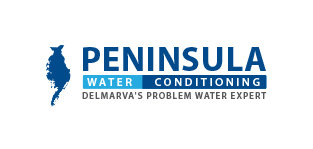

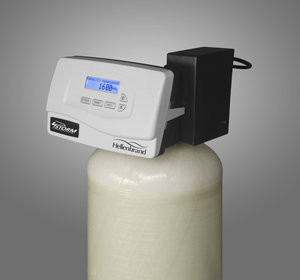
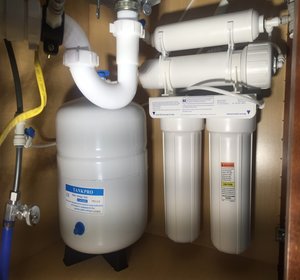
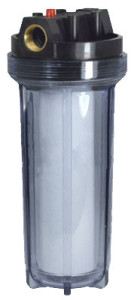
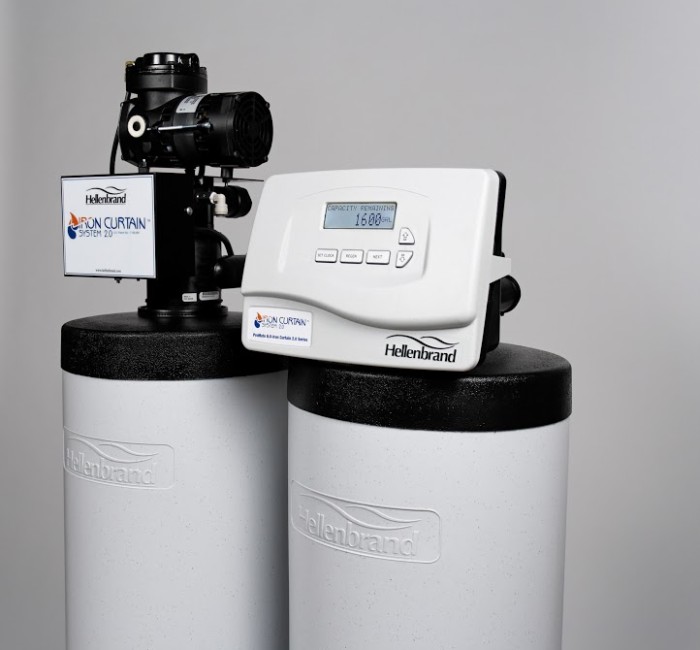
No Comments